‘Don’t make me angry. You wouldn’t like me when I’m angry.’
And I’m sure that was true if you were standing facing Dr David Banner as he was undergoing his transformation to the Incredible Hulk but for everybody watching the television series in the late 1970s and early 1980s then him getting angry was definitely the best bit.
For those of you who haven’t watched the programme (or seen the films or read the original comics - I’m assuming that’s not many of you but you never know) Dr Banner’s change to the brutish Hulk was pretty dramatic. His clothes would rip as his muscles bulged larger and larger, his skin colour would change from its normal pinkish hue to a goblin-ish green and he grew to seven foot tall. His eyes would pale and his hair alter from Banner’s coiffured ‘do into a barnet in desperate need of a brush. The Hulk also had eyebrows that wouldn’t look out of place masquerading as the bristles on a broom.
To ensure the makeover was convincing - if a story concerning a man who turns into a very cross giant can be that in the first place - the production team didn’t just slap green face paint onto Bill Bixby (the actor playing Dr Banner), they employed a totally different actor, Lou Ferrigno to play Hulk. Although they did slap green face paint on to him, obviously – he wasn’t that colour originally. He also wasn’t seven foot (although at six foot five he wasn’t far off) but clever camera angles helped with that.
Ferrigno was a professional bodybuilder who won several titles and trained with Arnold Schwarzenegger. His incredible physique won him the part of the Hulk in 1977, which he stuck with through five series and three television movies; it’s a very memorable role that people still recognise him for today. Since the television series ended Ferrigno has also made appearances or done voice overs as the Hulk on a number of occasions in film and TV.
So how did Dr Banner develop the ability to turn into the Hulk?
Well, as the weirdly creepy voiceover intro to the tv series explains ‘Dr David Banner: physician, scientist. Searching for a way to tap into the hidden strengths that all humans have. Then, an accidental overdose of gamma radiation alters his body chemistry. And now, when David Banner grows angry or outraged a startling metamorphosis occurs.’
Banner’s interest in the limits of human strength sprang from the trauma that he experienced when his wife was killed in a car crash and he couldn’t save her. Collaborating with colleague Dr Elaina Harding Marks he used the resources at the Culver Institute, where he worked, to study people who had summoned extraordinary resources of strength when they needed to rescue somebody from a perilous situation. The pair was unable to come up with anything substantial from their research but Banner was driven to continue. He works late one night on a theory that gamma radiation could be the key to Herculean strength in times of necessity and yes, you’ve guessed what happens next, haven’t you?
Instead of carrying out a risk assessment and running his idea past his colleagues or superiors, Banner decides instead to subject himself to high levels of gamma radiation to see if he could be correct. What he doesn’t realise, of course, is that the gamma radiation machine (there’s probably a technical name for that) has recently been enhanced and the actual amount of radiation he delivers to his body is actually over five times more than he had intended it to be.
Despite this, Banner doesn’t appear to have elevated strength nor does he experience any side effects so he begins his drive home, exasperated that he is still no closer to his goal. On the way, however, his car gets a flat tyre and he hurts himself as he attempts to change it. Anger floods through him and suddenly, the radiation overdose takes effect. Banner’s rage initiates the first appearance of the Hulk; his body and brain alters and he becomes the huge green giant, destroying a car and frightening some nearby campers. He doesn’t speak as the Hulk, although there is a lot of grunting and roaring instead.
Banner eventually changes back to his normal self but with no real recollection of what has just occurred or why he has a gap in his memory for this time. He visits Dr Marks and together they try to work through his confusion of recent events at a secluded lab in the grounds of the Institute; they are unable to come up with any answers. Tired, Banner decides to sleep and, during a nightmare involving his wife’s death, he changes back into the Hulk while Marks watches. Later, Banner and Marks decide that it was extreme negative emotion that caused the gamma radiation to change Banner into the Hulk, which is a frightening thought. If Banner can’t control his anger, especially when sleeping, he can’t control the appearances of the Hulk, nor will he know what he has done during these times.
To add to the drama, National Register reporter Jack McGee, who is already keeping tabs on Banner’s research into human strength, also begins investigating the campers’ account of witnessing the Hulk. McGee goes to the lab to confront Banner and Marks (they deny all knowledge) before hiding behind a storage shelf to try to see what is going on. Banner discovers him hiding causing McGee to knock some chemicals to the floor, creating an explosion and subsequent fire. Banner rushes back into the lab to get Marks out and the sight of her injured and in danger kickstarts another emergence of the Hulk; the creature carries her out to safety but she dies anyway.
McGee sees the Hulk with the body and concludes that it was responsible for the deaths of both Marks and Banner; the Hulk is now wanted for murder. Banner decides to go on the run, to escape detection and also to give him time to figure out how to destroy the Hulk.
Each episode had the same basic structure: Dr Banner would move from place to place, taking on a new identity each time. He would find odd jobs to bring him money to survive and to allow him to continue to researching his condition. In each new place he would end up helping somebody and whilst he always tried to stay calm and thus not invite the Hulk to appear, something would always happen to make him livid. Which, in a way, was actually a good thing because it was usually only the Hulk who had the physical power to solve the problem anyway. And in a neat twist, the issues that Banner/Hulk tried to resolve in other people were usually versions of their own ‘inner Hulk’, whether that was fear, anger or another destructive emotion.
After the episode’s main plot had been wrapped up then Banner would return his attention to the closing in of journalist McGee and would have to move on again. Another town, another problem and another outing for the Hulk. Yay! (Well, yay for the viewers at least: Banner must have been exhausted.)
It should, of course, be noted that while the Hulk was a brute he wasn’t actually a villain. He didn’t have intelligence on his side but he had the same motivations and ethics as Banner. He attacked those who would do harm but would never kill, he would just throw them out of the way. He always protected the innocent and the vulnerable and was particularly gentle with babies and animals. Not easy for him to get that across though, looking like he did.
As a side note: if you have read the original comics you’ll have noticed that Dr Banner’s original first name was Bruce but in the television programme it was changed to David. There was confusion at the time as to why this was but both Ferrigno and Stan Lee (comic book writer and co-creator of the Hulk, Spiderman, the X-Men etc.) reckon that the executives at the CBS television network changed it to David after stating that it was, inexplicably, ‘too homosexual a name’ for the character. Ken Johnson, the show’s executive producer gives another reason: he didn’t like the memorable alliteration of names that many comic books feature (Peter Parker, Lex Luther, Lois Lane, Dr Doom, Green Goblin, Killer Croc, Silver Surfer….the list goes on) and wanted to show that the television series was different to the Hulk comics. He also claimed that Banner’s new name was a nod to his son, David.
Either way, the name Bruce features as the character’s middle name on a shot of his gravestone.
I loved The Incredible Hulk as a child although it always left me with the same feeling as when I watched Lassie or The Littlest Hobo; an overwhelming sadness as they saved the day but then walked away alone. It was the combination of the goodness of their hearts combined with the sheer loneliness of their lives….oh blimey, where are my tissues?




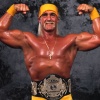
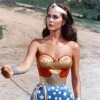
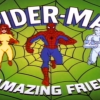
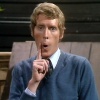
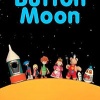
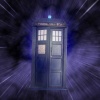
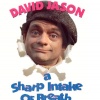

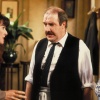
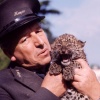
Do You Remember The Incredible Hulk?
Do You Remember The Incredible Hulk?